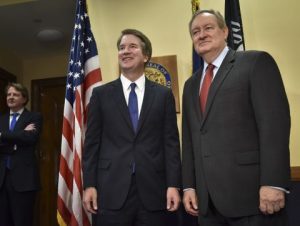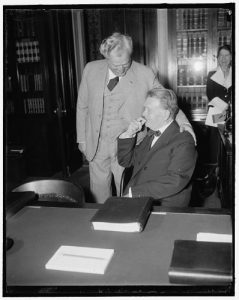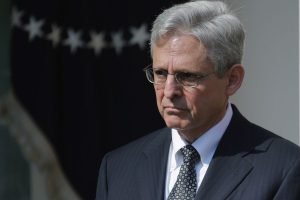———–
Just when it seems that our politics can’t possibly produce yet one more head spinning moment we get one.
An amazing thing happened this week. The world laughed at the American president. While he was making a speech. At the United Nations.
Oh, I know, Trump fans will discount the importance of a spontaneous outburst of chuckling from the world’s diplomats. European elites, they will scoff. A reaction coming from African nations that are, well, it rhymes with lit holes.

While it’s tempting to toss off yet another Trump moment as just the latest Trump moment the reaction to the president of the United States boasting about his greatness at the U.N. is really a symptom of a larger, more serious problem for the United States and the world. At the same time the United States has retreated from a position of international leadership we continue to suffer a difficult to correct deterioration of democratic practice at home. Unfortunately we are not alone.
As Edward Luce, a writer for the Financial Times, notes in his brilliant little book The Retreat of Western Liberalism, “Since the turn of the millennium, and particularly over the last decade, no fewer than twenty-five democracies have failed around the world, three of them in Europe (Russia, Turkey and Hungary.)” Luce is, of course, using the term “liberal” in the classic sense: liberal democracies encourage people to vote in free elections, they welcome dissent, they value a free press, they respect differences and find ways to compromise in the cause of an unruly, yet broadly universal understanding of progress.
Yet, the prevailing momentum in the world is not toward greater equality either political or economic. By one recent estimate, a third of the world’s people now live in democracies in decline. All the energy from the British exit from the European Union to new U.S. trade wars is in the direction of isolation, retrenchment and conflict. We see the telltale signs of this new world order playing out in real time. For 70 years the NATO alliance has provided security for Europe, Canada and the United States, yet the current administration, apparently ignorant of that history, picks fights those allies and plays nice with a Russian dictator. Rather than thoughtful engagement with China – Ed Luce calls the emergence of China as world power “the most dramatic event in economic history” – we apply time dishonored methods of tariffs and taxation that will soon enough hurt Idaho potato growers, Montana wheat farmers and Iowa soybean growers. China, meanwhile, consolidates its influence across the Pacific basin, while we tax ourselves thinking we will bring them to heel.
Americans are badly, one hopes not fatally, distracted at the moment. The constant political turmoil, the blind partisanship, the disregard for fundamental political and personal decency is part of a pattern across the globe. As the European scholar
Anne Applebaum put it recently, “Polarization is normal. More to the point … skepticism about liberal democracy is also normal. And the appeal of authoritarianism is eternal.”
Ask yourself a question: How much of what you hear and read about politics today do you really trust?

Authoritarians like Putin in Russia or Erdogan in Turkey have mastered manipulation on public opinion, they control the sources of information if they can, intimidate those they can’t and dominate and denigrate the rest. Democracy does not thrive in spaces where leaders label as “fake” or a “hoax” that with which they disagree. But demagogues do get ahead in societies where distracted citizens come to believe that nothing is real, that there are versions of the truth. More and more political leaders, even a candidate for governor in Idaho, seem comfortable with their own versions of Trump’s “fake news” mantra.
It used to be that political leaders, real political leaders, practiced the old political game of addition. How do I add to my support? How do I bring people together? How do we solve problems even if my side can’t prevail completely? How do we strengthen the often-fragile norms that define acceptable behavior? How do we strengthen the rule of law rather that assault it? Those were the days. Now it is all about juicing the base or perhaps even worse, depressing the vote.
The retreat of western liberalism is happening at precisely the moment the United States is fighting to lead the retreat. At a moment that demands American leadership, fresh thinking about old problems and a commitment to pluralistic societies, we are hunkered down building walls and denying climate change. And the world is laughing at words like, “my administration has accomplished more than almost any administration in the history of our country.”
Ironically, Donald Trump’s moment at the United Nations this week is, like so much of the man’s story, a fulfillment of his own expectations. Trump “has always been obsessed that people are laughing at the president, says Thomas Wright, a European expert at the Brookings Institution. “From the mid-’80s, he’s said: ‘The world is laughing at us. They think we’re fools.’ It’s never been true, but he’s said it about every president. It’s the first time I’m aware of that people actually laughed at a president.”

The laughter is on us, as is the future. It is nowhere ordained that American democracy will forever flourish and carry on. In fact the opposite is true. Modern world history is the story of one democracy after another – Italy, Germany and Spain in the 1920s and 1930s and Poland, Brazil and India today – facing internal turmoil, political polarization, decline or worse. We are not immune.
Friedrich Hegel, the great German philosopher put it succinctly, “We learn from history that we do not learn from history.”






